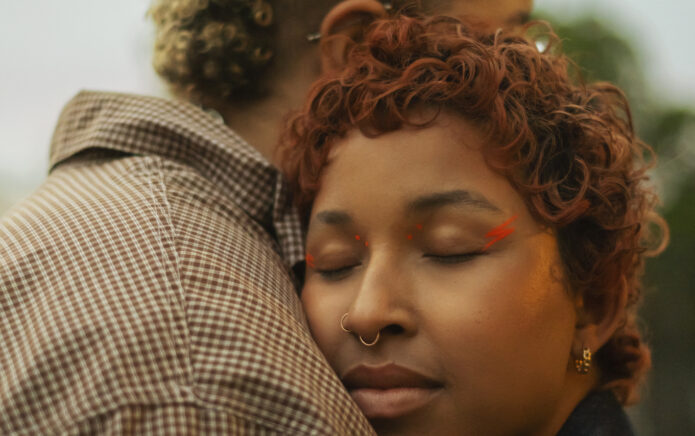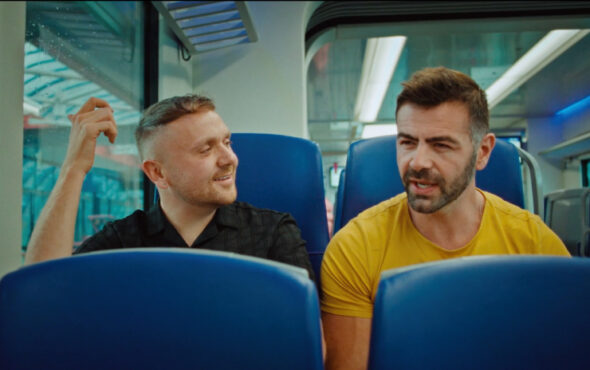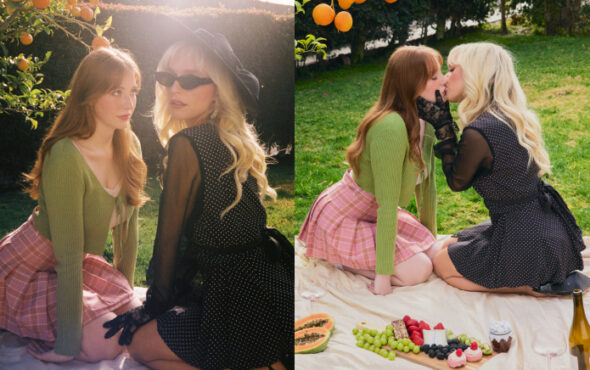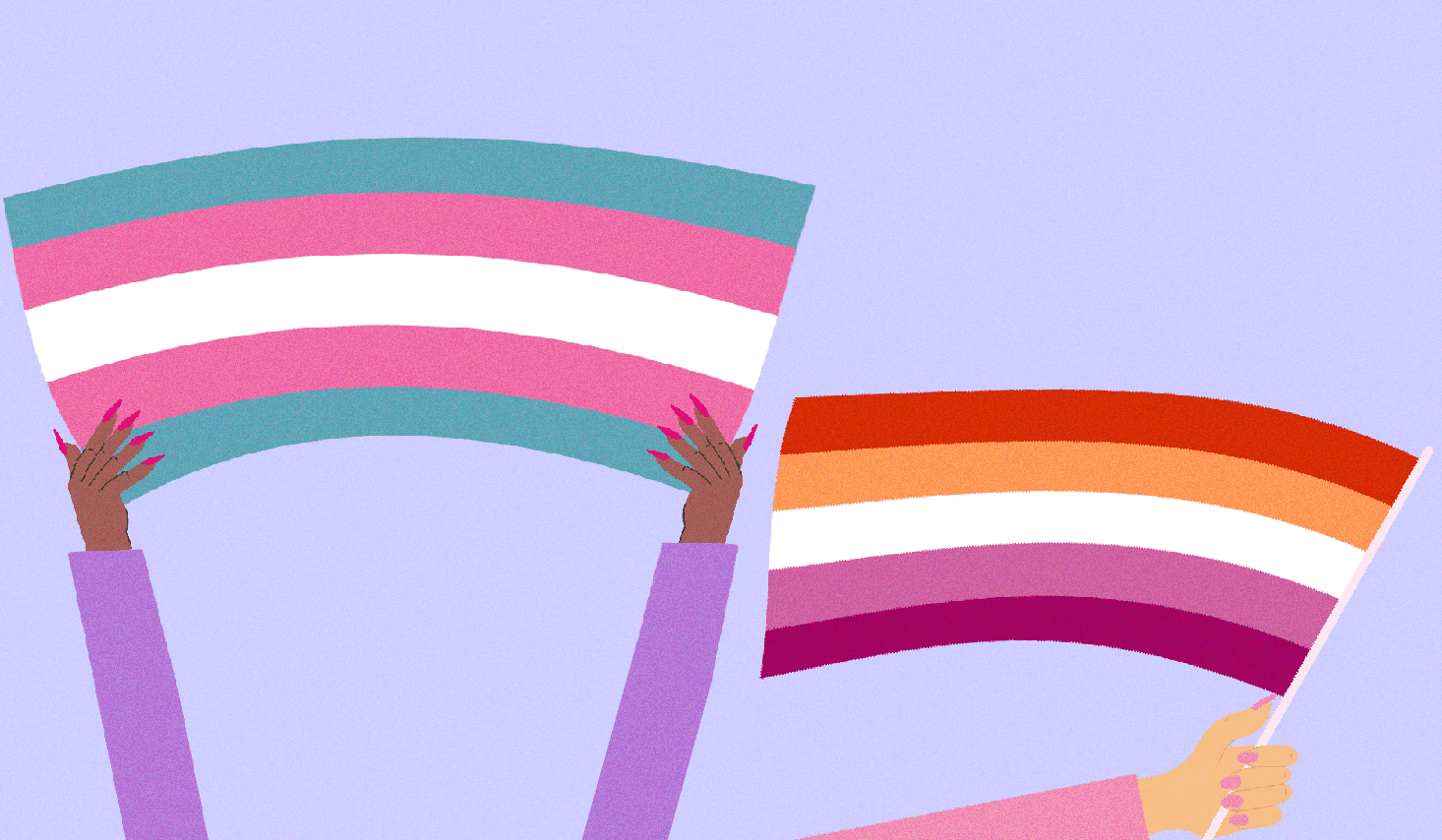
The other day I got a WhatsApp from a lesbian friend. “I’m worried lesbians are seen as anti-trans,” she said. This is someone who, even in her thirties, has struggled to embrace the word ‘lesbian’.
There is already so much shame and stigma around the word ‘lesbian’. In fact, the harmful stereotypes associated with the word have directly caused the majority (68%) of us to delay coming out. Lesbophobic tropes that we’re man-hating or unattractive are really just homophobia and misogyny rolled into one.
Several lesbians I know now say they feel torn about using the word – even though it’s exactly who they are and a word that describes them best – due to a certain narrative that we are somehow pre-dispositioned to be anti-trans.
As a lesbian, I’m horrified by this and it also just doesn’t add up.
I texted my friend back: “How many anti-trans lesbians do you know?” She replied: “None.” I don’t know any either – and I know a lot of lesbians!
The idea that lesbians are somehow more likely to be anti-trans is yet another lesbophobic trope that we’re forced to deal with and dismantle.
That’s why I’m so glad that we finally have the research to demonstrate what most lesbians already knew: this narrative is completely false.
New research by Just Like Us has found that lesbians are the most likely of the whole LGBTQ+ community to be supportive of trans people. Lesbians are the most likely to say they know a trans person (92%), and also the most likely to say they are “supportive” or “very supportive” of trans people (96%). That’s compared to 89% of LGBTQ+ people overall, and just 69% of non-LGBTQ+ people.
The research was independently conducted and surveyed more than 3,600 adults aged 18-25. Even within a group of young adults, who would be expected to be more supportive of trans people, lesbians are still incredibly strong trans allies relative to the rest of the LGBTQ+ community.
But there are other reasons that the idea that lesbians are more likely to be anti-trans doesn’t add up. One is that being a lesbian and being trans are not mutually exclusive – sexual orientation and gender are different parts of our identities. You can be trans and a lesbian.
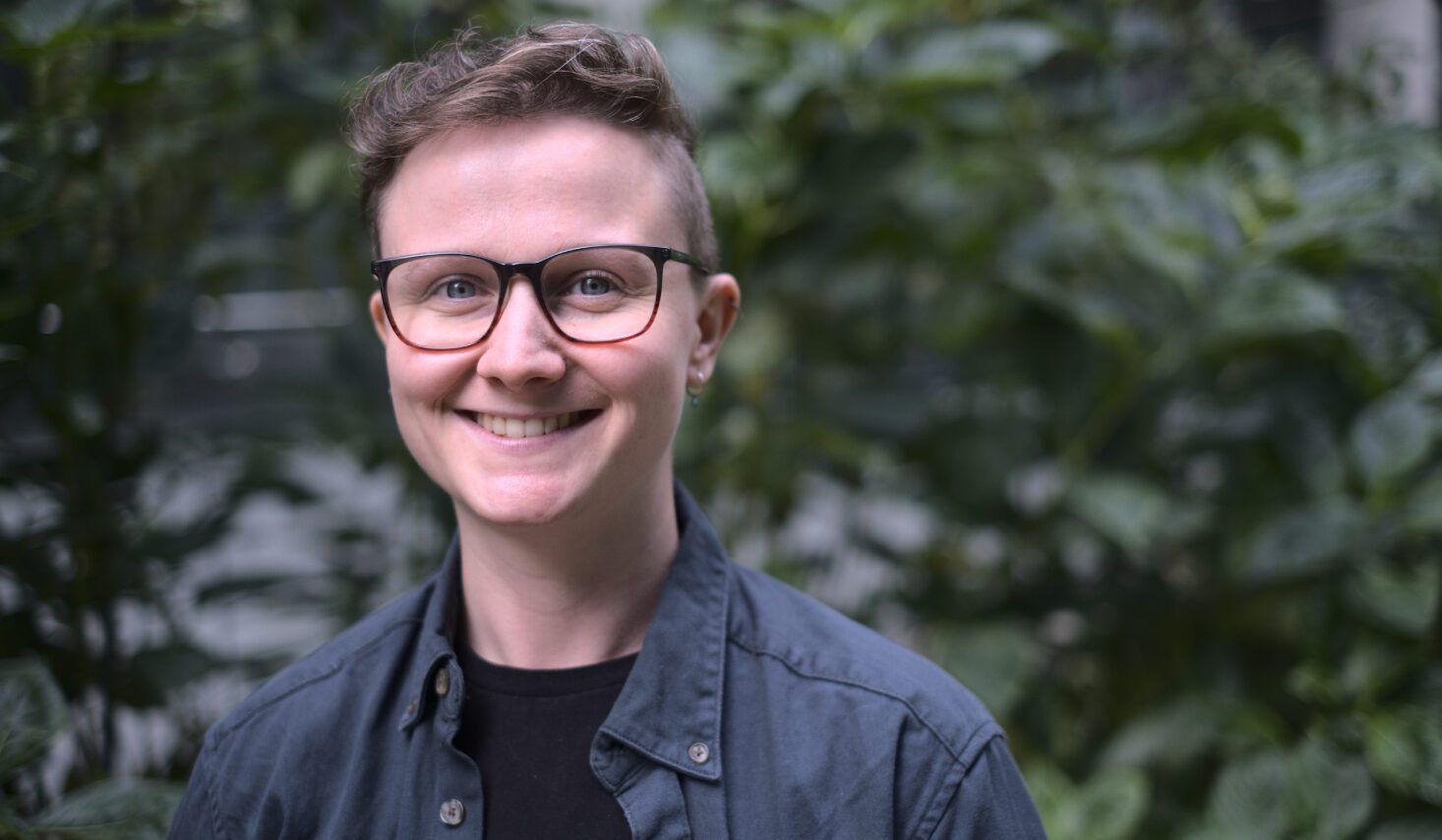
Secondly, as a lesbian, I see so much overlap with the experiences we and trans communities encounter in the heterosexist world we live in. Particularly, as a butch lesbian, I know that we are both used to living in the margins, to not having our identities respected or understood. Lesbians and trans people stand side by side – we always have done and always will. And this isn’t just my opinion, the research shows this is the case too.
So when you hear or read a nasty, false stereotype about lesbians being anti-trans, I hope you’ll be able to see it for what it is: a lesbopobic trope.
The good news to come from our research is that if you know a trans person, you’re twice as likely to be a trans ally. Three quarters (74%) of those who say they are not supportive of trans people don’t even know a trans person in real life. Transphobia really is rooted in a fear of the unknown.
In some ways this isn’t surprising at all. Trans people make up 0.5% of our population according to the latest census – they’re a tiny community, so it’s no wonder so few people know someone who is trans. But that coupled with a constant barrage of negative media headlines, politicians being interrogated on their definitions of what makes a woman (why are we even asking men to define women anyway?) and trans people being framed as a ‘debate’ for the dinner table, is a dangerous mix. Suddenly everyone feels the pressure, and the entitlement, to have an opinion on a topic they largely know nothing about. And trans people aren’t just ‘a topic’, they are human beings, just trying to live their lives like the rest of us.
Transphobia is rising at an alarming rate in our society. I find it surreal when people fail to see the parallels between the tactics of promoting homophobia and the fear of the unknown used against us in the past, and the ways that trans people are being talked about today. This fear mongering led to Section 28, and to the generations of LGBTQ+ people suffering because of those attitudes. Now, we’re seeing history repeat itself.
So we must push through this fear of the unknown. That’s why LGBTQ+ inclusive education in school is so vital – we must create a brighter future for young people who can know there is no shame in being a butch dyke like me, trans or non-binary, or whoever they grow up to be.
Amy is the Interim CEO for Just Like Us, the LGBT+ young people’s charity. If you’re LGBT+, age 18-25 and living in the UK, you can volunteer for the Ambassador Programme here.
